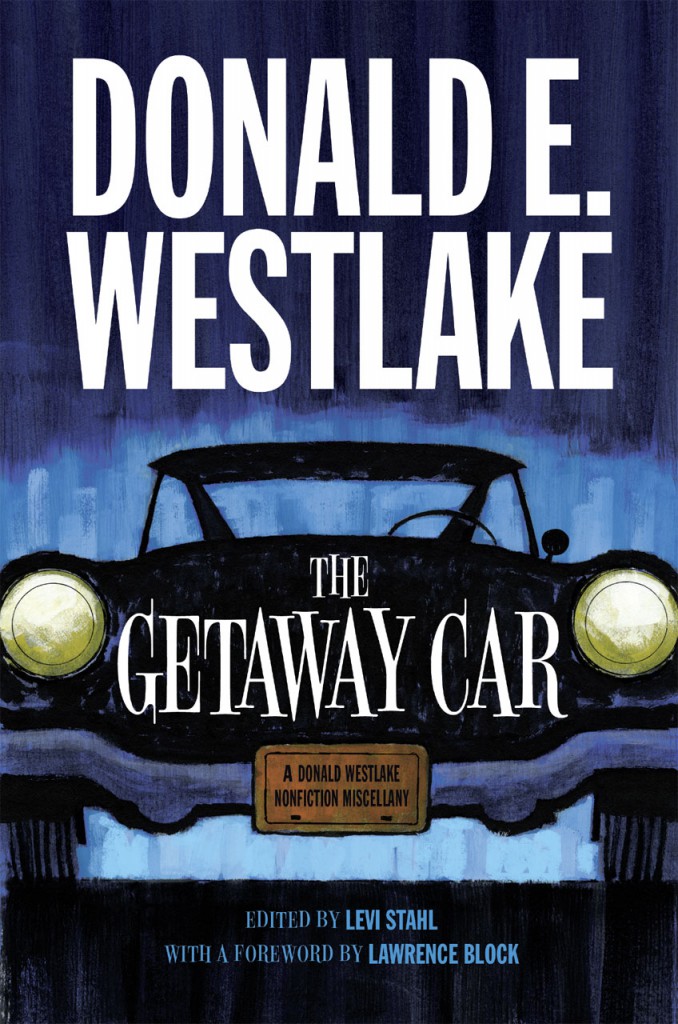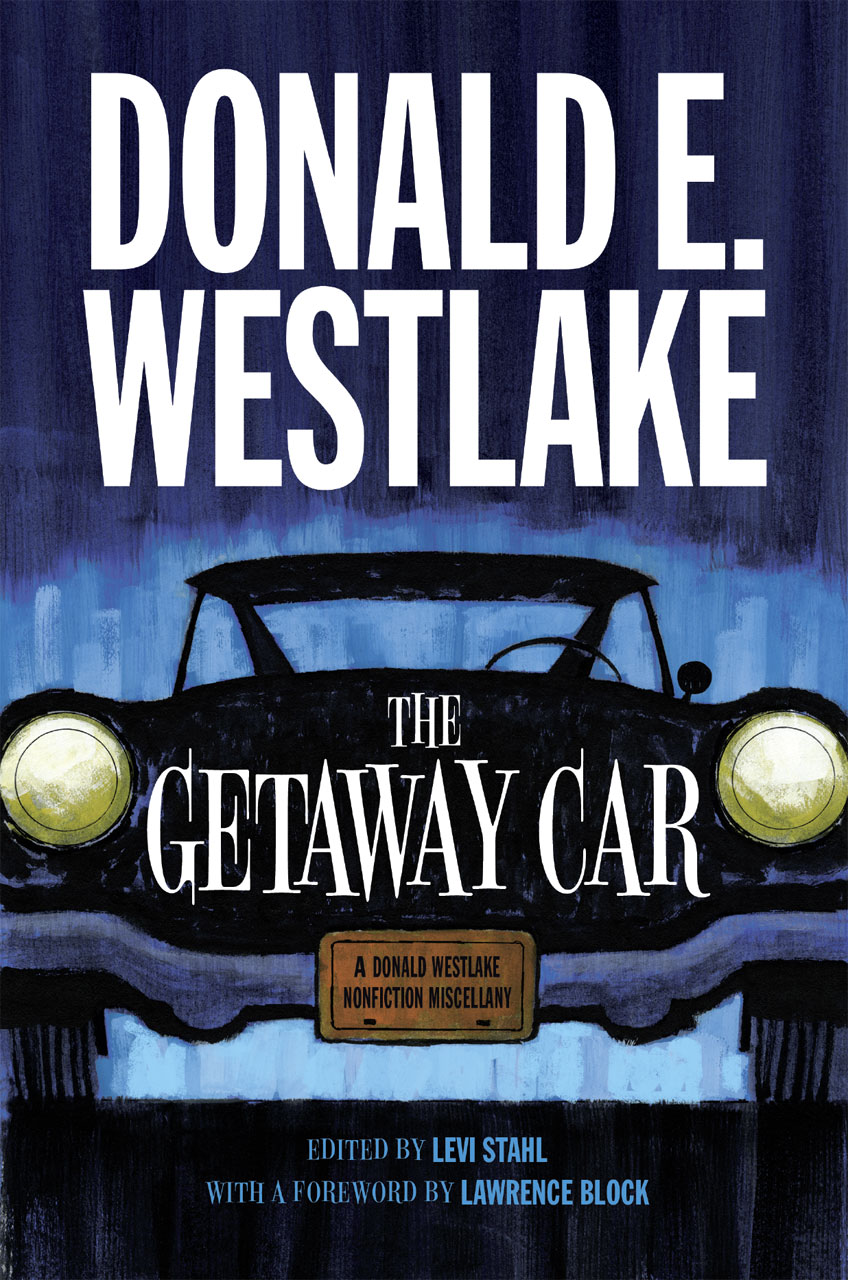
The Getaway Car: A Donald Westlake Nonfiction Miscellany
by Donald E. Westlake; edited by Levi Stahl
University of Chicago Press; 223 p.
Donald Westlake wrote about a hundred books over some fifty odd years under a dozen or so pen names. Most of those titles could broadly be classified as crime fiction but he probably explored more permutations and tangents of the form than any other author. This likely explains all those pseudonyms. We rarely have the chance to get a look at the working habits of a writer like Westlake. Genre writers rarely merit the published letters/memoir/tell-all treatment. They exist in a different aisle of the literary marketplace. Luckily for us, Levi Stahl and the University of Chicago Press* have seen fit to give us just such an opportunity with The Getaway Car: A Donald Westlake Nonfiction Miscellany.
Consisting of essays, introductions to others’ books, letters and other odds and ends, this book gives us invaluable insights into a working writer’s process. And make no mistake, Westlake worked. His approach was that of a craftsman going about his day-to-day labors; no putting on airs or pretension of any kind. In fact he makes this distiction between ‘writer’ and ‘author’ in response to a university library’s request to house his papers:
It has seemed a natural state of affairs that authors should be collected, annotated, and assembled, but that writers should be left to do their doodling on sand.
From someone less capable and witty, this might sound like false modesty but Westlake genuinely believed himself to be a humble toiler, and a proud one at that. He thought books should bring readers pleasure and he did all he could to make that happen. In one of his anthology introductions, he eloquently defends the “lowly” mystery genre, pointing out how intellectual types are always loathe to admit that they actually finish many more of these types of books than the ones deemed “important”.
There’s a lot to be said for setting restrictions in one’s work. By confining himself to defined forms such as the detective story, a writer is free to comment on events of his day or explore any number of societal issues without the pitfalls of becoming dated or overly ponderous. The armature of a crime story can support a certain number of tangents or flights of fancy but always demands a return to the proceedings of narrative. The great pleasure of the essays in this collection is to learn how much Westlake thought about while staying firmly within the areas he chose to mine. Here he muses on how technology impacts a writer’s work. It’s as relevant today as when he wrote it 30 years ago:
I believe that television has made a deep change in our perception in time—at least of recent time—and that in some way all of the last fifty years exists simultaneously in our heads, some parts in better focus than others.
His knowledge of his fellow practitioners in the paperback trenches is another pleasure of this volume. From a history of the term hardboiled dicks to an appreciation of a mostly forgotten writer like Peter Rabe, Westlake illuminates a literary world that’s increasingly a distant memory. A hard worker like him could pay his rent from publishing a dozen stories in pulp magazines or cranking out two or three potboilers in any given year. The real money—then as now—was in TV and film but one could feed a family with just words on paper. One gets the impression that he’d have been able to carve out his own patch even in today’s virtual free-for-all.
You’d think that someone of his stature wouldn’t stoop to adapting others’ work but screenplays were a regular part of his living. His recollections of working with Stephen Frears while putting Jim Thompson’s The Grifters on screen is one of the highlights of the book. As are various short quips and asides from his dealings with editors and filmmakers. The one where he bemoans the fact that they added a puppy to the screen version of The Stepfather is priceless. He makes it sound like a cardinal sin against art but does it with a good-natured wink.
In his introduction Levi Stahl instructs the reader not to start with this book as an introduction to Westlake, but it could be argued that The Getaway Car might just be the gateway drug we need to dive into his work.
* My first book, Hack: Stories from a Chicago Cab, was published by University of Chicago Press and Levi Stahl played a part in bringing it to print.
Follow Vol. 1 Brooklyn on Twitter, Facebook, Google +, our Tumblr, and sign up for our mailing list.

